A Xenoblade Chronicles Fan’s Series Journey
Important Note: The following article contains heavy spoilers from the Xenosaga series and Xenoblade Chronicles.
If asked by a random stranger “what is one of your favorite video game series of all time?” my response would easily be “the Xenosaga series.” While my list of favorite JRPGs is long, Xenosaga stands out because of the way it influenced my personal philosophy and outlook on life. Deeply rooted in western religion and philosophy, I’d argue that the narrative of the Xenosaga series is a clever modern day parable. The story builds from a general sci-fi narrative to one that encapsulates the human condition and tackles big questions about the meaning of life. The series has its flaws, but getting through them and making it to the proverbial peak is rewarding. I’ve always wondered if that was one of Monolith Soft’s quieter game philosophies: push the player to think, struggle, and fail, only to feel redeemed at the end of the experience. It’s one of the reasons why I always yearn to return to the Xenosaga universe, but also must remind myself that returning to it would mean investing at least a couple of months, minimum, into completing it again.
Xenosaga’s story ends in a very convoluted way. I’ll do my best to explain, but it won’t make sense to many people. It is revealed that in our universe, there is an “Eternal Recurrence” (a reset of the universe). It’s considered a necessary part of the continued existence of the universe. The fear is that as the number of “dissipating wills” increases in the imaginary domain (Unus Mundus), the domain itself will collapse. KOS-MOS, one of the main protagonists, is actually Mary Magdalene, and she has been the one responsible for resetting the universe.
The recurring action is supposed to happen the same way each time, but this time around KOS-MOS doesn’t want to reset the universe once again. She and the rest of the cast destroy the key to activating Zarathustra. They decide, even if it’s not a guarantee that they will succeed, to go against “the will of the universe,” and take their destiny into their own hands. The ending isn’t happy, as we’re left wondering what precisely happened.
The on-going joke among fans about the story is that it takes a degree in philosophy and religion to understand it. There is truth in that; I ended up taking a second major in religious studies (emphasis in Judaism), which certainly helped me understand the concepts behind Xenosaga. I sat in the library reading the Gnostic Gospels (where the monsters in the game known as “Gnosis” came from), listening to various songs from the soundtrack, feeling like I was unraveling the secrets of the universe. As a queer undergraduate student, Xenosaga made western religion feel accessible and nonjudgmental to me. I went so far as to read the entire Bible, often becoming emotional with some of its stories.
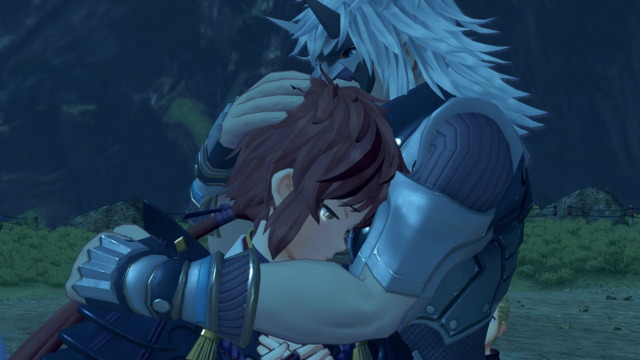
Collectively called the Xeno-series, Xenogears, Xenosaga, and Xenoblade Chronicles contain narratives that explore religion, philosophy, and the human condition.
As insightful as this experience was at the time, I was left wanting more. The third and final Xenosaga game was released in August of 2006, and I always wondered if Monolith Soft would ever revisit the universe. It was supposed to be a six part series, but much like Xenogears, Xenosaga’s older sibling, production was cut short and left Monolift Soft scrambling to tell a hefty narrative in a more condensed fashion. Xenosaga’s ending is horribly bittersweet; hearing the ending theme “Maybe Tomorrow” always twists my gut and brings me to tears. The image of a nearly broken KOS-MOS floating toward our Earth resembled the way I felt about Bandai Namco abruptly ending the series. I was ripped apart but quietly hopeful that one day something would come along to satiate this desire for a narrative that nourishes my spiritual side.
Things changed when the pandemic hit. I had all this time to myself, and didn’t know how to fill it. I couldn’t go too many places, so I started to feel trapped. I looked toward the theory of self-actualization for guidance. At its most basic form, self-actualization is about learning to accept you for who you are, and finding fulfillment in activities that help you reach that state of being. For me, it was finding truth in video game narratives. I spent the early part of the pandemic taking daily walks in the park and playing video games. It was around this time that Xenoblade Chronicles: Definitive Edition was making the rounds on social media and many gamers were revisiting their love for it. I latched onto the ways in which people said that the narrative was “deeply philosophical” and decided it was time to give it a try.
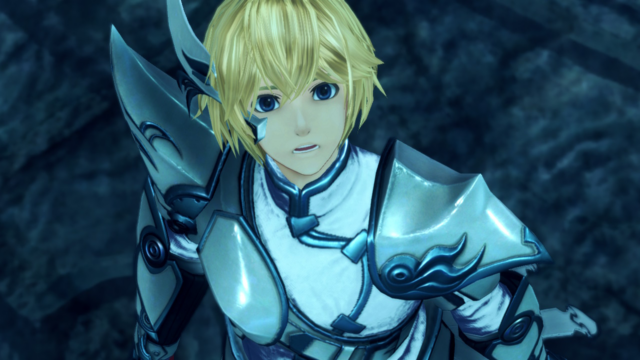
Shulk looking up to the sky in shock was like me looking at the steep learning curve of Xenoblade Chronicles for the first time.
I would love to say that my initial impressions of the Xenoblade series were positive, but they were mixed at best. I didn’t understand the combat system and constantly died. I was upset at how the RPG “holy trinity” of tank, damage dealer, and healer didn’t hold up. Combat setup felt overwhelming and I felt defeated each time I had to drop to Casual Mode. I couldn’t safely walk around the big world without some level 98 monster stomping on my level 23 party, and the abundance of side quests felt ridiculous. The game felt grindy and it aggravated me. I was able to keeping going because the story is so engrossing. I took so many screenshots of the atmospheric settings, and even put the controller down when some of the field songs played. My frustrations were quelled enough in these moments for me to take a deep breath and continue the journey.
The journey felt worth it when I got to the final boss. The narrative structure that I loved in Xenosaga’s ending showed in Xenoblade’s ending. Klaus, a scientist from Earth, destroyed the universe that we know. Known as Zanza in the game’s world, he and the fellow scientist, Meyneth, who attempted to stop him, were the only two in contact with the controls on the station where a big experiment was happening. Being the only two supposed survivors, they become gods of the new universe. Zanza created Bionis and the creatures who lived there, and Meyneth created Mechonis. Zanza’s plan was to continuously use the life of Bionis to keep himself alive. That meant killing most, if not all, life created upon him to sustain him. Much like KOS-MOS and the rest of the Xenoblade crew, Shulk and his crew defied their universe’s cyclical existence in order to achieve true free will. Shulk, with the power of the ambiguous Alvis, becomes a Creator and creates “a world with no gods.” Ultimately, it makes sure a much more sissifying ending and the biggest difference between Xenosaga and Xenoblade Chronicles is that the ending doesn’t feel at all rushed. KOS-MOS probably made it back to Earth eventually, but we get to see how Shulk freed a rebuilt incarnation of Earth and continued living in it.
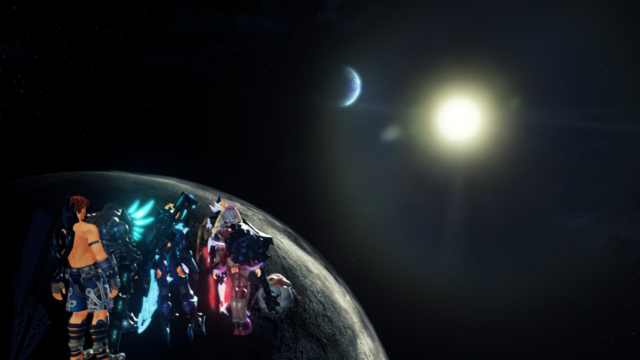
The moment that Shulk and crew witnessed the destruction of our universe and the birth of theirs, I knew Monolith Soft’s traditional storytelling techniques were still alive.
Now, it is July, and I am impatiently waiting for the arrival of Xenoblade Chronicles 3. After its announcement in February, I replayed both Xenoblade Chronicles: Definitive Edition and Xenoblade Chronicles 2. In later June, and as part of #JRPGJuly, I’ve even started replaying the first game again from the start, with the goal of self-actualization in mind. I plan to learn to accept gameplay challenges as Monolith Soft’s way of gamifying the trials and tribulations we as humans face by merely existing. The rewards, I am aware, come at the end when the journey while watching the epilogue unfold and the ending theme “Beyond the Sky” plays in the background. Unlike “Maybe Tomorrow,” which wallows in the torturous and bittersweet ending of Xenosaga, “Beyond the Sky” embraces the hope of a boundless future of ups and downs. It twists my stomach whenever I listen to it, but I also smile because I know that this time around, Monolith Soft has been able to tell the compelling narrative they’ve been trying to tell since Xenogears. Both Xenogears and Xenosaga have amazing narratives, but suffer from the stress of trying to complete ambitious narratives on a cut budget and development cycle. Watching the Nintendo Direct dedicated to Xenoblade Chronicles 3 in late June showed me that Monolith Soft continues to thrive under Nintendo.
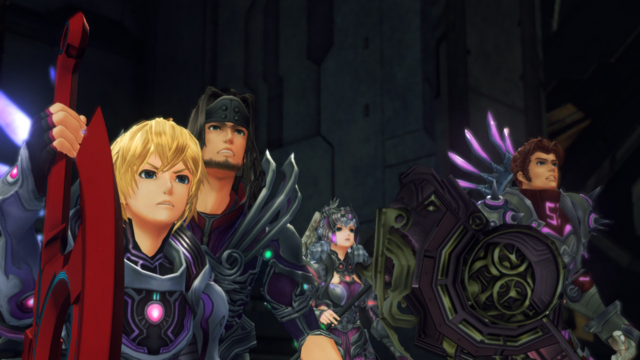


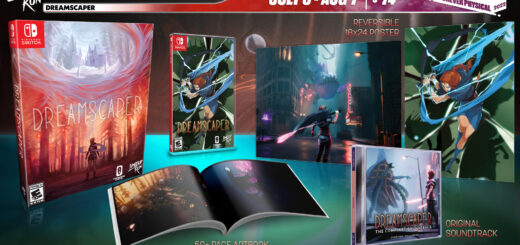



Recent Comments